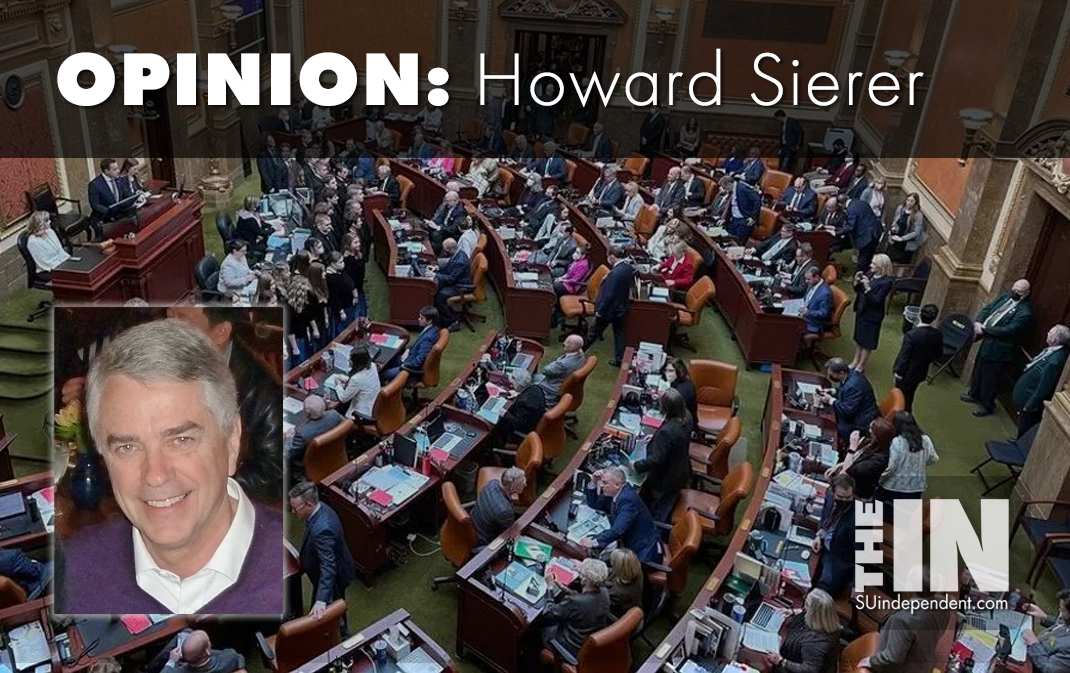
Controversy But No Surprises: Utah Legislature 2024
– By Howard Sierer –
Surprises are limited by legislators’ extensive preparatory groundwork accomplished ahead of Utah legislative sessions since those sessions are constitutionally limited to 45 days. Hence even controversial bills get what appears to this outsider as being steamrolled through to approval during the session itself, having been vetted in advance by the Republican majority.
Utah’s majority-Republican voters elected an even more Republican-majority legislature. On top of that, a Republican governor is seeking reelection this year and anxious to prove his conservative bona fides after some missteps earlier in his first term. The results were largely satisfying to both fiscal and social conservatives.
Right out of the chute, the legislature passed what was termed the “bathroom” bill. HB257 changed the legal definitions of “female” and “male” to categorize Utahns by their reproductive organs at birth. With that definition, the law requires people to use sex-designated locker rooms, showers and changing spaces in government buildings that align with their assigned gender.
To this observer, the law protects women and girls – over half our state’s population – from sharing facilities with the very small minority of biological men with male genitalia who see themselves as females. Pres. Biden, desperate to motivate his progressive base, calls laws like this one transgender discrimination and “the civil rights issue of our time.” To me, it’s only common sense.
Targeting another divisive progressive political issue early in the session, lawmakers passed HB261. The law dismantles diversity, equity and inclusion (DEI) offices and programs at Utah’s colleges and universities and in state and local governments. It also prohibits certain types of diversity training.
I hope it puts an end to mandatory DEI training at our public colleges like Utah State’s “Decentering Whiteness” and the University of Utah’s discriminatory hiring practices that require applicants for faculty positions to demonstrate commitment to DEI principles and practices. DEI as it’s been implemented is nothing less than a progressive political agenda item.
Another hot button topic got the legislators’ attention: “inappropriate” (pornographic) books in public school libraries.
HB29 allows for a single book to be removed from all Utah public schools if at least three school districts — or two school districts and five charter schools — determine that the book contains “objective sensitive material.” That includes anything considered pornographic or otherwise indecent that does not have “literary, artistic, political or scientific value for minors,” as currently outlined by Utah law.
A dissenting legislator said she didn’t oppose the bill because she wants porn in classrooms but because the bill goes too far in preventing students from accessing materials on uncomfortable but real-life events such as rape or incest. But that, of course, is the crux of the issue: who decides what’s “uncomfortable but real-life” while less than pornographic?
I’m uncertain about the method the lawmakers chose to identify offending books but at least they didn’t try to make those thorny decisions themselves. My hypothetical concern: three rural, very socially conservative school districts decide to eliminate a certain book. The rest of the state is obliged to go along. Seems a little draconian.
Less controversial and more widely acceptable things got done. Income taxes were cut (a little), public school funding was increased, and vote-by-mail was retained over the objections of a few legislators.
A practice I oppose – public funding of professional sports stadiums – was approved if Major League Baseball and/or the National Hockey League approve expansion or transfer franchises for Salt Lake City. Fortunately, the taxes needed to build these palaces would be levied only locally in the Salt Lake area. My longstanding opposition to this practice can be summed up in a single sentence. Why should your widowed grandmother living in the area be required to fund professional sports?
The facilities would be funded with tax-exempt municipal bonds paid off by all citizens in the designated areas. They would primarily benefit very wealthy team owners and their highly-paid athletes, generate surprisingly few local jobs and charge outrageously high ticket prices that only the well-off can afford including businesses that buy tax-deductible private boxes to entertain clients. Your tax dollars at work.
In the eyes of their supporters, professional sports teams are an ego thing that shows the city and state have achieved major league status. I can do without the ego boost.
I was disappointed that SB226 fell short this year. It proposed requiring a public college undergraduate core composed of classes in western civilization, American history and government, and rigorous math and science coursework. Jesse Jackson led a 1987 protest at Stanford that led to those courses being dumped nationwide in following years in favor of works on race, class, and gender written by ethnic minority and female authors. It’s time to discard faux history and progressive political indoctrination and get back to real scholarship and learning. The bill is likely to be revived next session.
One small bit of legislation has a direct and favorable impact on me: front license plates will no longer be required starting in 2025. Car washes have wreaked havoc on my front plates for years.
Summing up: I’ll take what we got. Thanks to our lawmakers for the time and effort they put into making Utah a great place to live.



